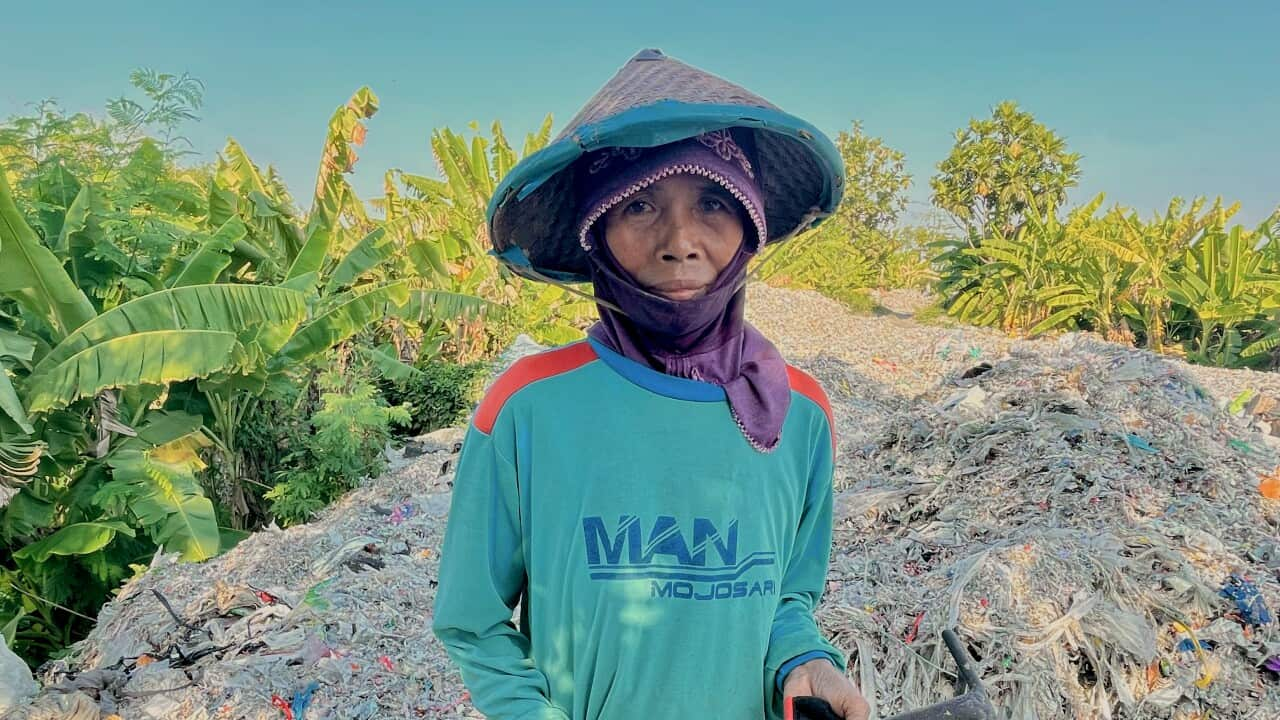But there’s a lot to sort through. A ring of discarded plastic encircles an entire rice field in Wirobiting.
Scattered throughout the waist-high piles is plastic packaging showing the brand names of Australian supermarkets and products.
Australia has exported more than 750,000 tonnes of paper and cardboard in the last financial year, with nearly a third of that going to Indonesia.
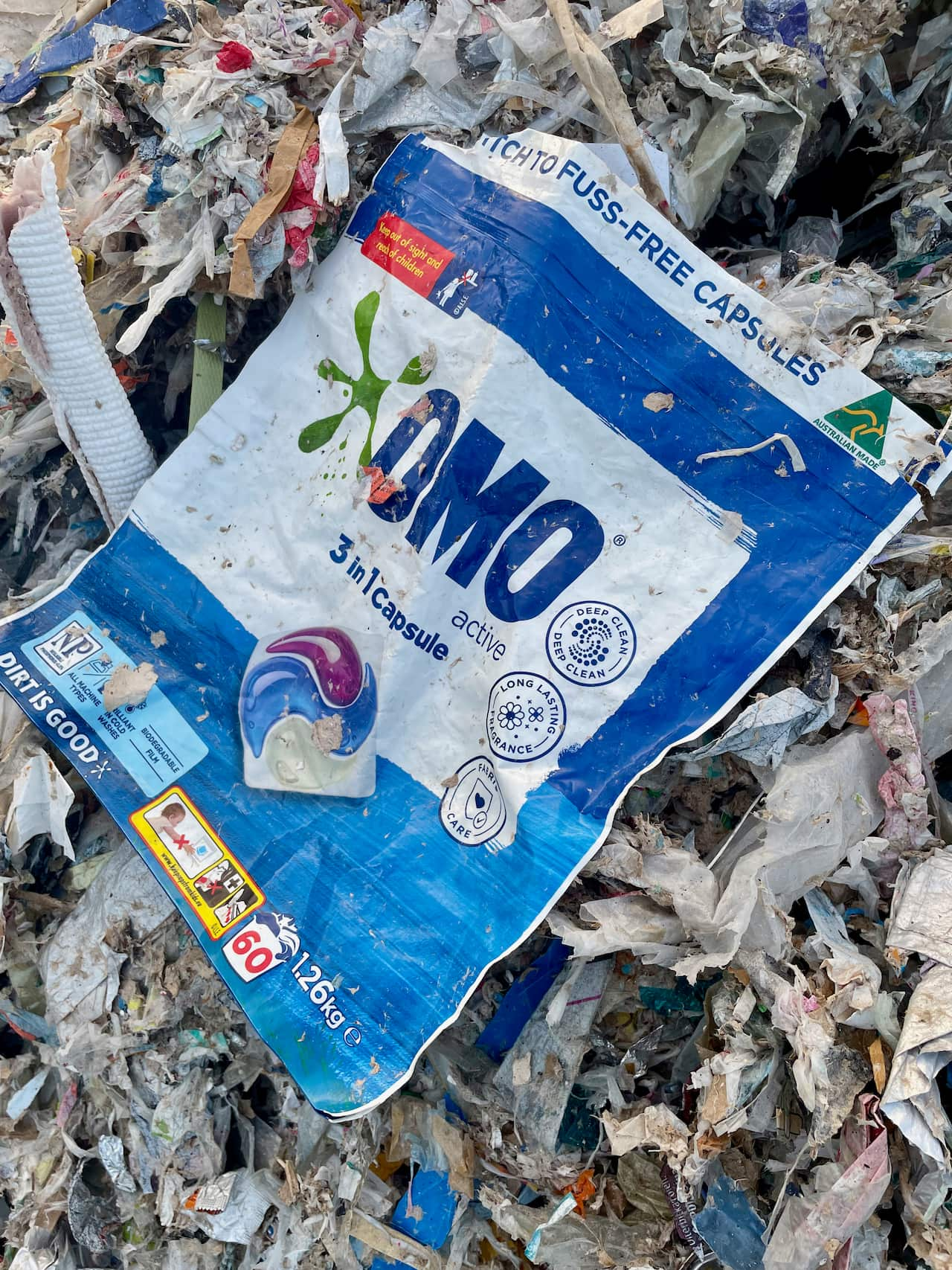
Indonesia imports about 3 million tonnes of wastepaper annually, including from Australia. Source: SBS News / Aaron Fernandes
The intention is to create a with wastepaper, explains Kyle O’Farrell, the director of Melbourne-based environmental management consultancy Blue Environment.
“So much cardboard comes into Australia, so much plastic comes into Australia,” O’Farrell says.
They’ve staged regular protests outside Australian diplomatic offices in Indonesia this year.
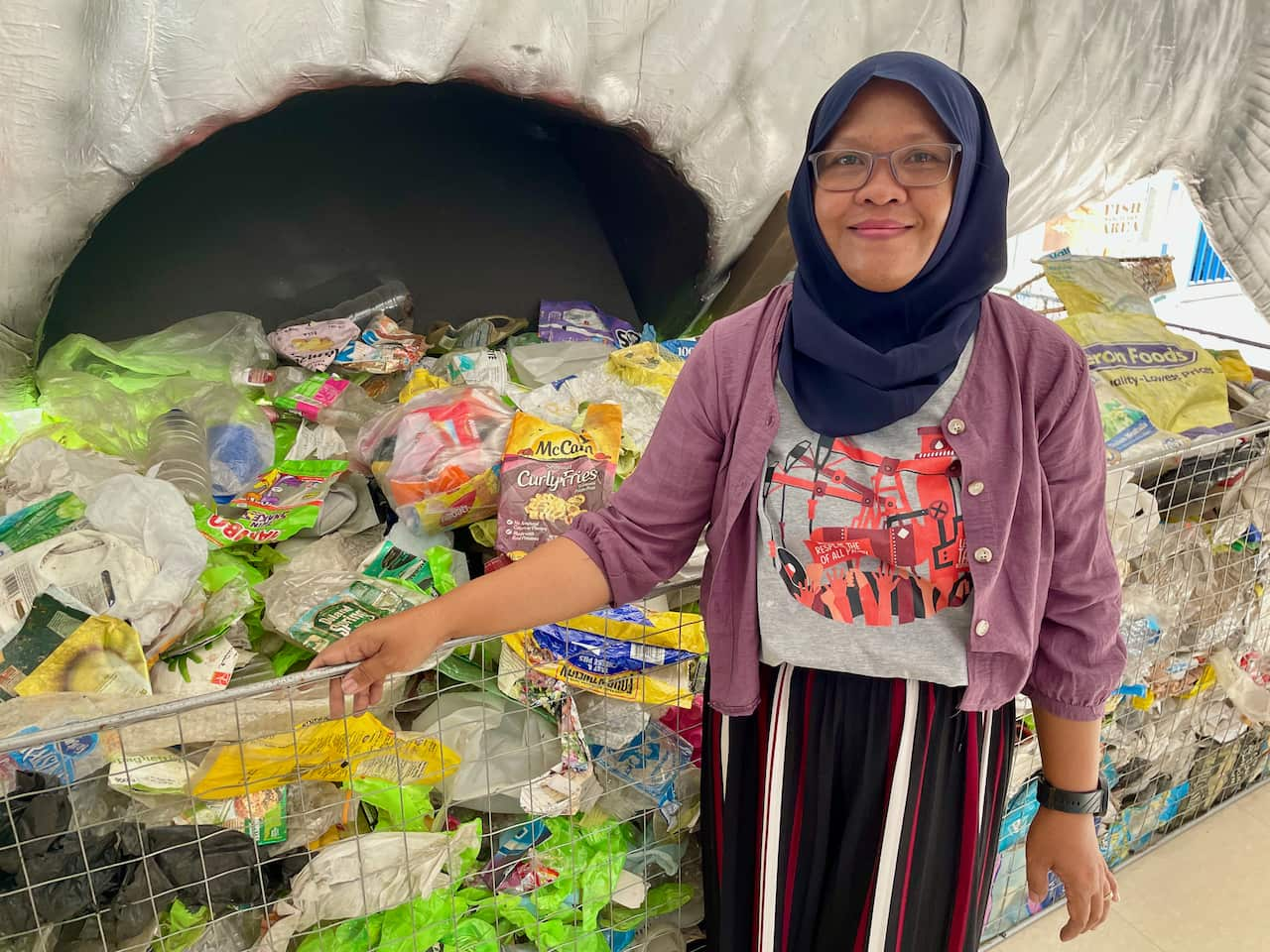
Daru Setyorini runs the Indonesian-based Ecoton Foundation and is calling for a ban on waste exports to Indonesia. Source: SBS News / Aaron Fernandes
Among those calling for a halt to exports is Daru Setyorini. She’s the executive director of the Indonesian-based Ecoton Foundation and says the wastepaper is contaminated.
“But it’s not really clean. It can contain up to 10 per cent of contaminants, especially plastic scrap.”
‘It’s not clean’
Other plastic is burned in local factories’ cement kilns as a cheap source of fuel.
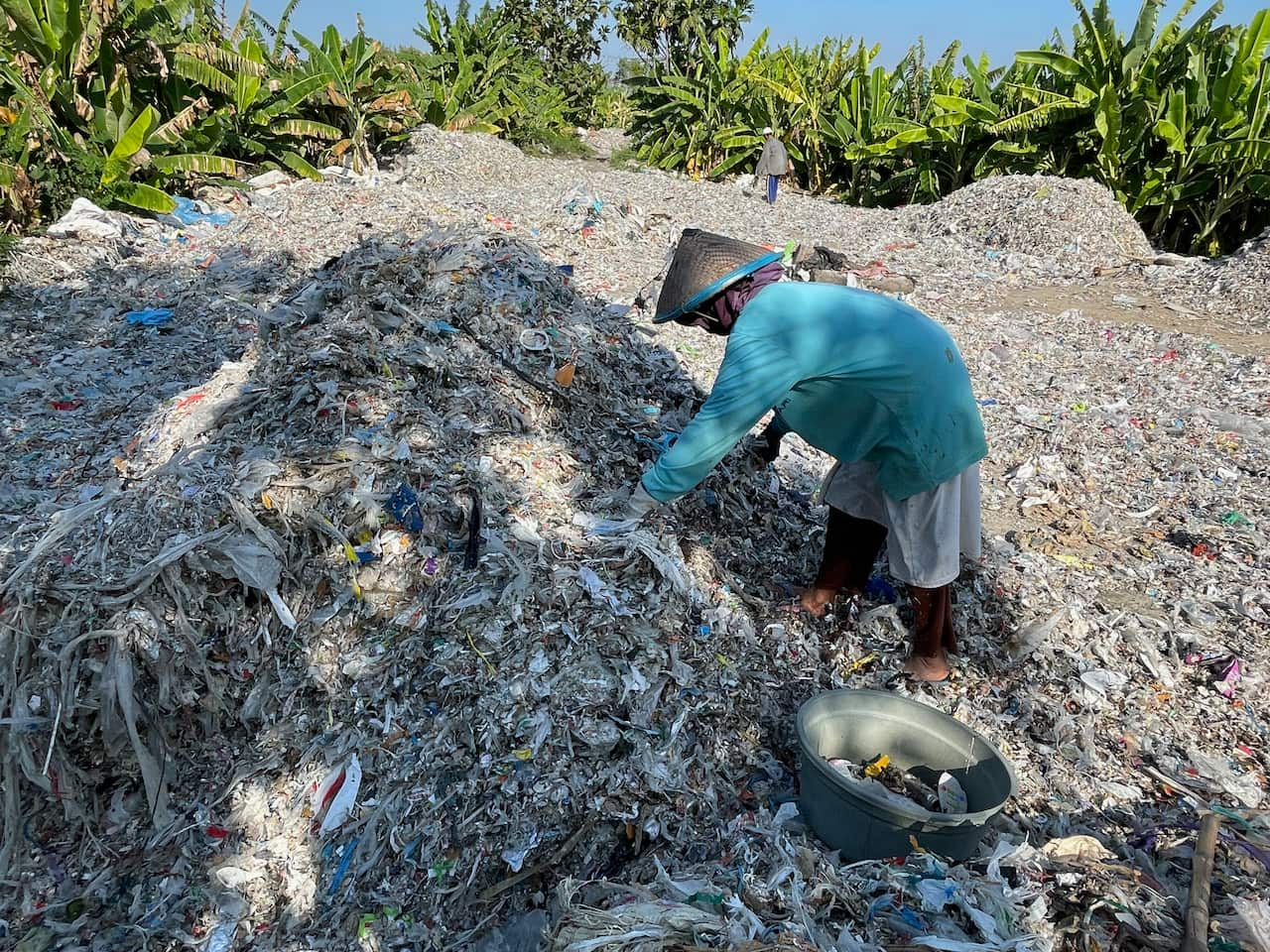
Sumina sorts through a pile of plastic waste in her village. Source: SBS News / Aaron Fernandes
The work exposes her to hazardous toxins on a daily basis.
“You also have the residual that ultimately has no value being burnt in an open, uncontrolled way, and that has a lot of toxic fumes.
All of these things can be hazardous both to local environments as well as the health of workers and communities.
“The smoke blows to the east [and] the situation for children is not good, so they must stay in the home.”
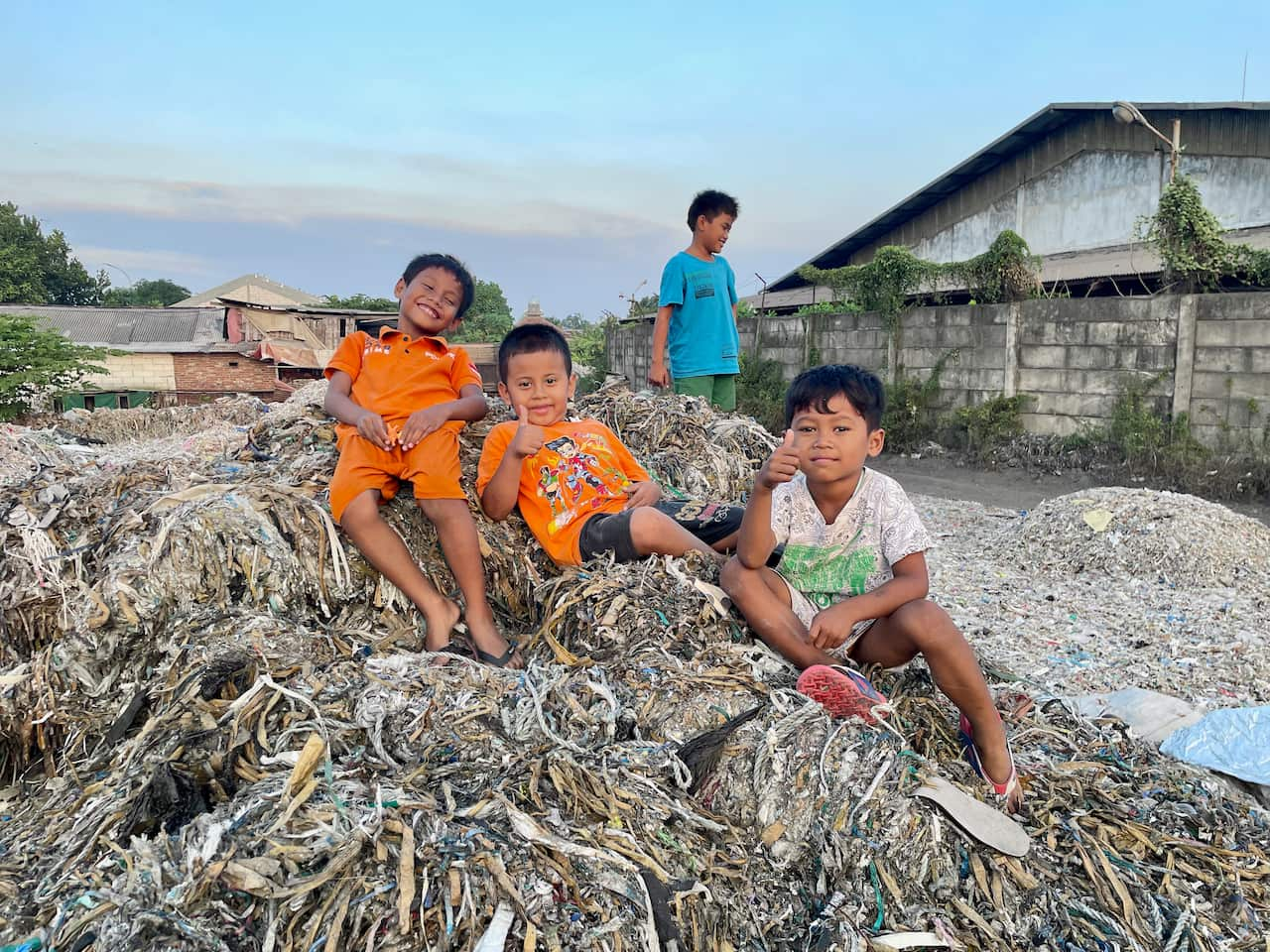
Children in Wirobiting are being exposed to potentially hazardous toxins from imported waste. Source: SBS News / Aaron Fernandes
Environmental testing by Ecoton has found dioxins in the air from burning plastic and contaminants in local rivers due to wastewater.
“That’s why we want all the developed [countries to] have more capacity to [recycle],” Setyorini says.
If they say it can be recycled, then they should recycle in their own country. They should not send [it] to other countries for recycling.
At the centre of its domestic waste problems is a lack of sorting. Fewer than one in five households separate their waste, meaning everything from food to plastic, metal and clothing are all dumped in increasingly overcapacity landfills.
“Because in Indonesia, we already have our own problem with waste. Actually, if the waste picker [wants] to do waste collection, they can just go to collect their own waste in their own village. There [is] already plenty of waste they can collect.”
Calls to strengthen Australian recycling
Australia’s waste industry peak body rejects claims it is sending contaminated shipments overseas but says it does want to see more recycling done in Australia.
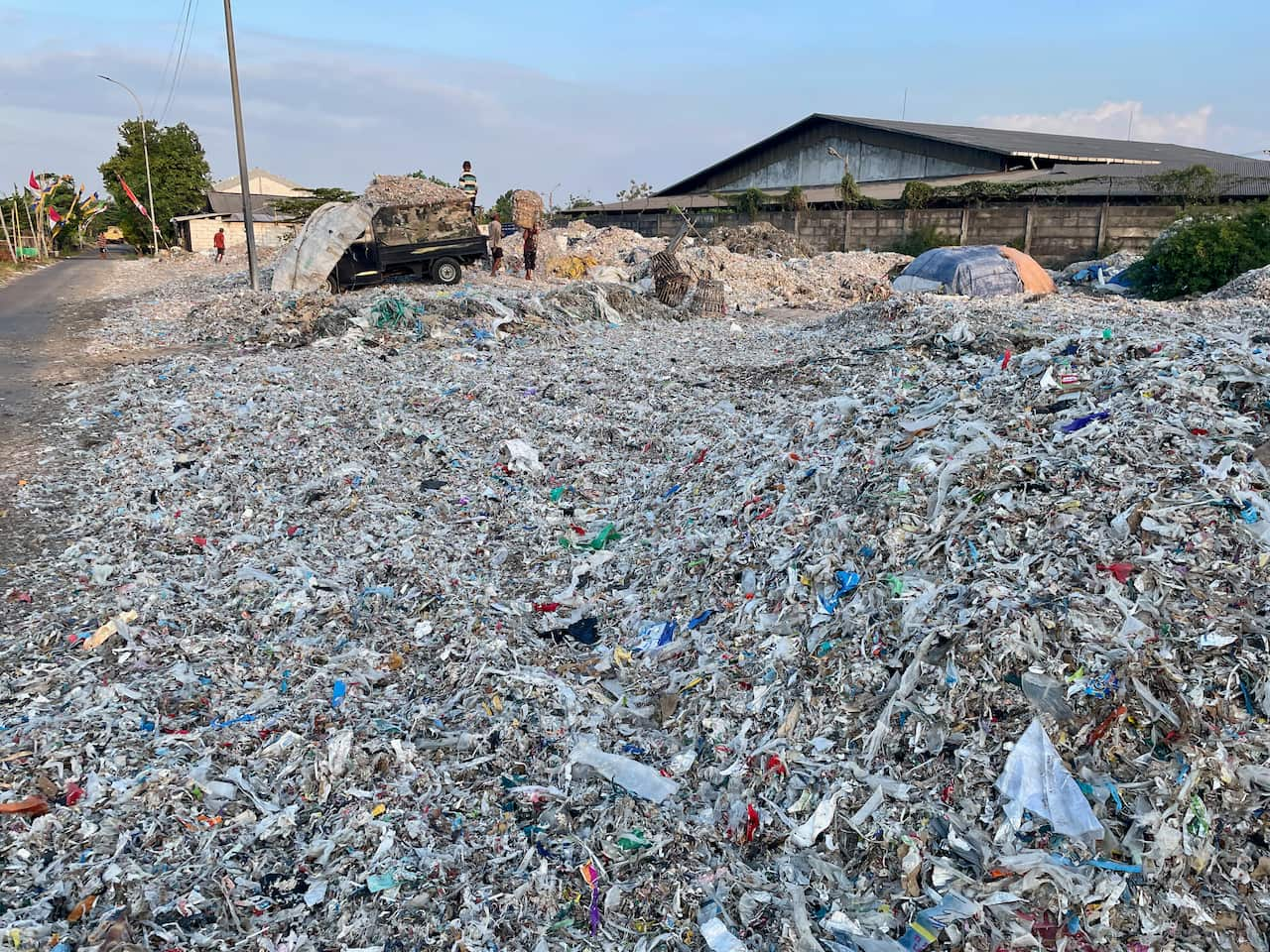
Industry experts say the federal government’s planned circular economy framework should be in force by the end of this year. Source: SBS News / Aaron Fernandes
“We’re not sending waste. We’re sending commodities that have been purchased that are going to remanufacturing facilities in Asia,” Gayle Sloan, CEO of the Waste Management And Resource Recovery Association Of Australia, says.
“However, I would also say to Australians, what we would dearly love for you to do is buy products made from Australian recycled materials in Australia, so that we can grow our own remanufacturing basis and not have to rely on global remanufacturing to deal with the materials that we are consuming.”
“We have a commitment by this current environment minister that there’ll be a circular economy framework out by the end of the year,” Sloan says.
That’s great, but there is so much action that needs to be done and should have been done by now.
The Minister for the Environment and Water, Tanya Plibersek, told SBS News that in partnership with the states and territories and industry, the federal government is spending $1 billion on over 130 projects that will almost double recycling capacity in Australia.
